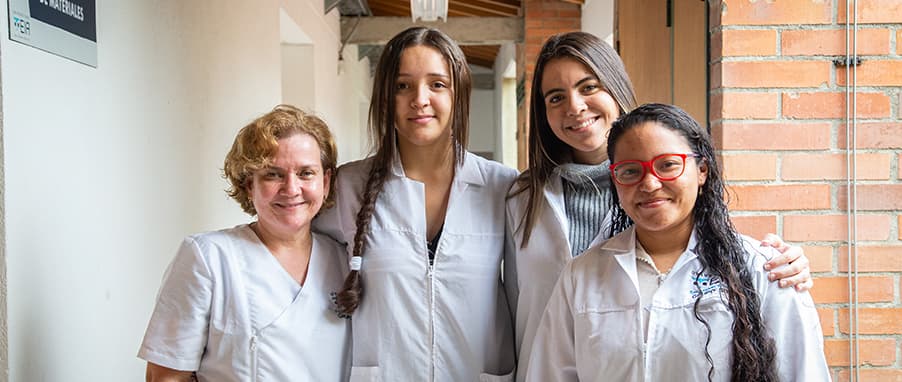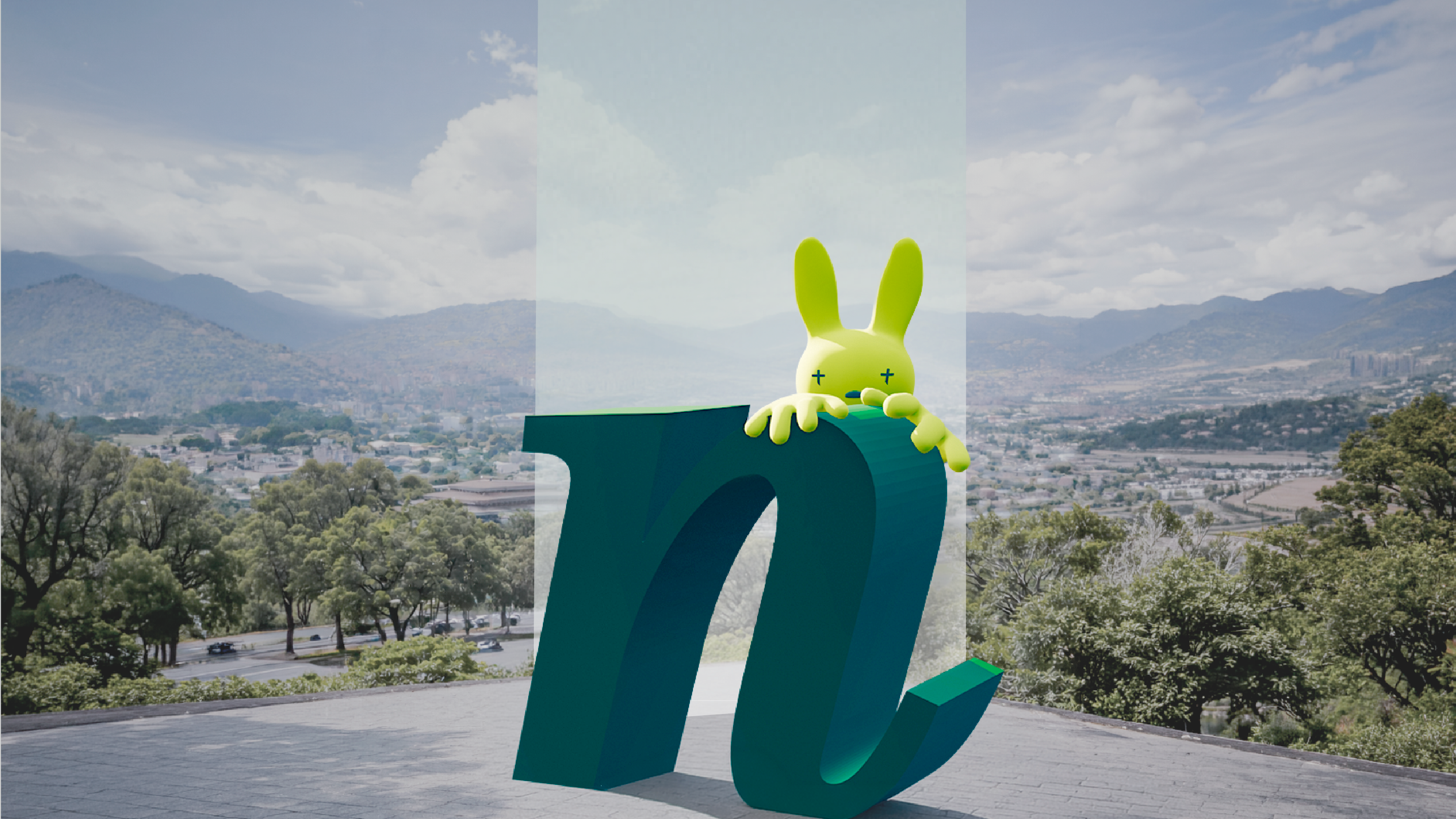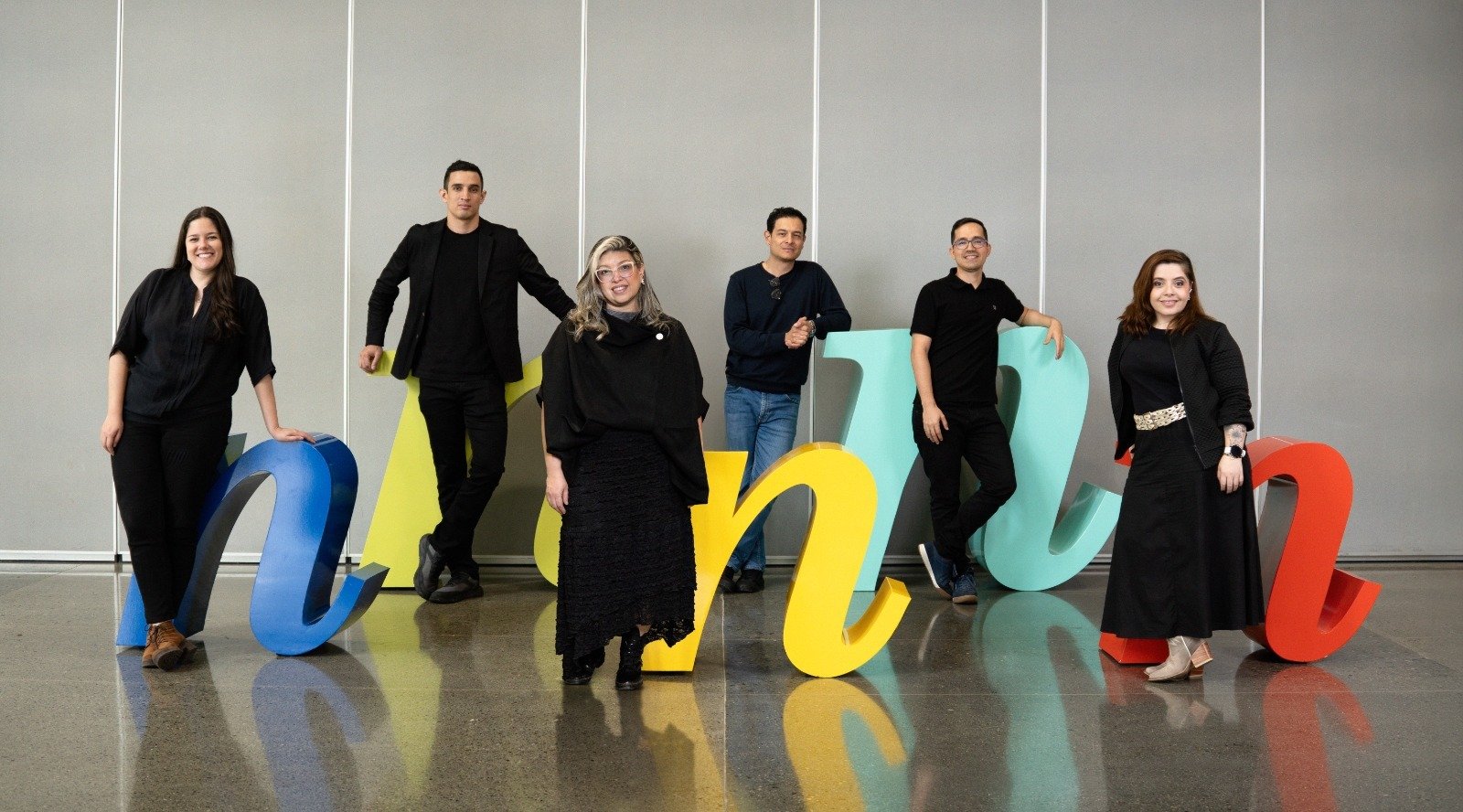
Three Universities Unite in a Project to Restore Urabá’s Soils
By Ruta N -“I believe that every professional dreams of seeing their work, effort, and knowledge benefit society,” says Adriana María Quinchía, Director of the Master's and Doctorate programs at the School of Engineering of Antioquia, standing in the lab where she and her team are conducting tests for a circular economy solution aimed at restoring the soils of Urabá Antioqueño.
This is why Adriana is so passionate about applied research, perfectly exemplified by the project titled “Development of a Soil Enhancer for Urabá Antioqueño Using Biochar Produced from Palm Oil Industry Waste.” The project was submitted to the G8 Regional Agenda by the School of Engineering of Antioquia, the National University, and the Pontifical Bolivarian University.
The project, rooted in a circular economy model, seeks to apply the findings of several female researchers to one of the agro-industrial activities generating the most waste: palm oil production. According to sources cited in the study, the palm oil sector produces 3,000 tons of palm kernel waste annually in Urabá Antioqueño alone. “That’s an enormous amount of waste that isn’t being leveraged within a value chain,” explains Nevis Ruiz, a Master's student in Chemical Engineering at the National University and the project's lead researcher.
To address this, the team improved machinery that, when applied to a process they specifically designed, can efficiently convert palm kernel waste into a product known as biochar. This biochar enriches soils depleted by the same industry’s activities.
The project combines chemical engineering, pyrolysis, nanotechnology, mathematical predictive models, carbon capture studies, gas condensation for potential biofuel generation, and partnerships with companies to conduct greenhouse tests. Together, these efforts aim to create a positive environmental and economic impact in the Urabá region.
Additionally, the project seeks to inspire undergraduate students to pursue meaningful change through science. “The goal is not only to deliver a potential solution for utilizing agro-industrial waste but also to train young researchers. These students are conducting applied research projects with the expectation of achieving results that demonstrate how their work can serve society,” explains Adriana María.
Now, the researchers are focused on successfully completing 60 days of greenhouse testing to confirm that biochar is an effective nutrient vehicle for soils. Once validated, they plan to share the solution with farmers and producers in the region.







